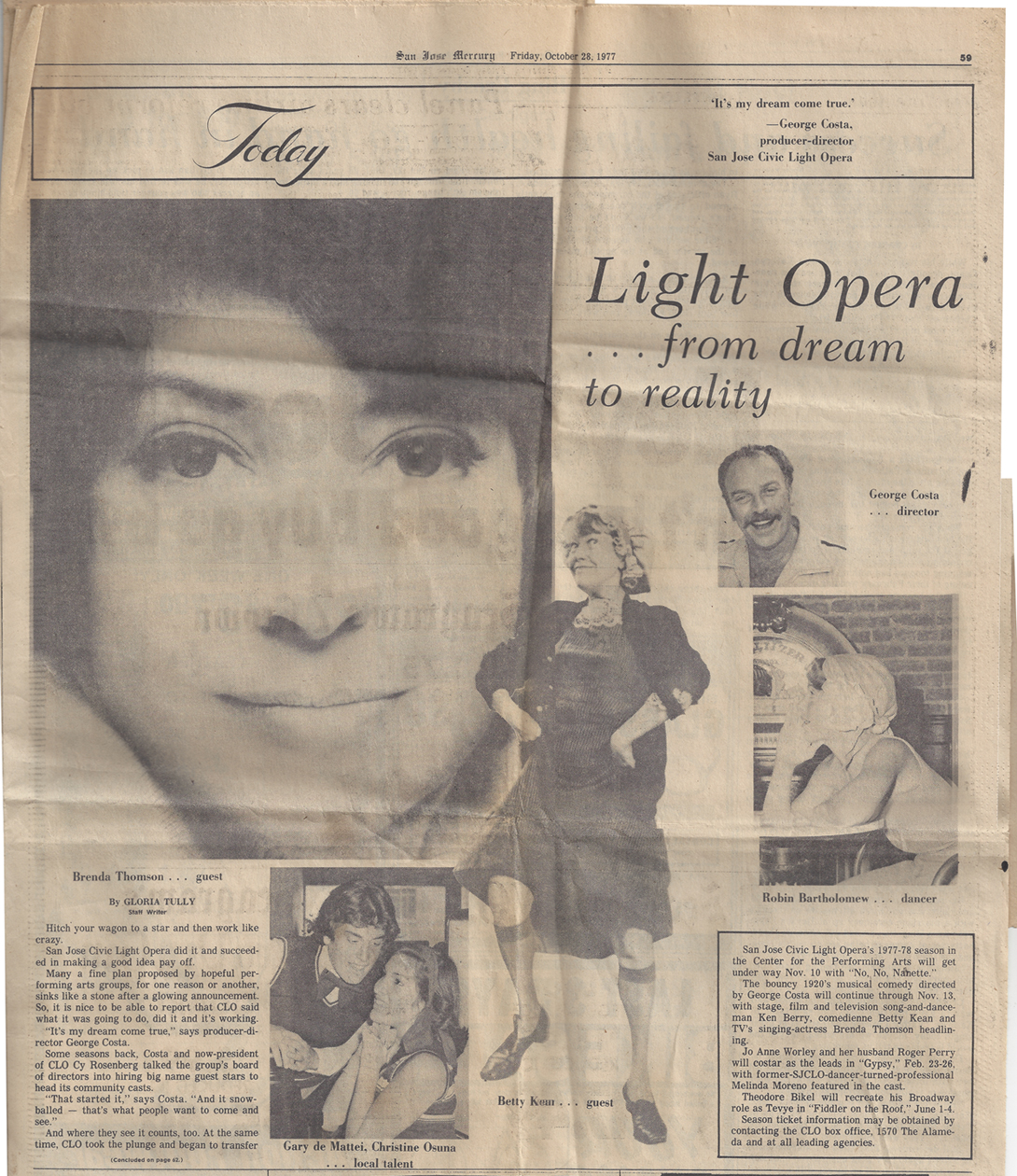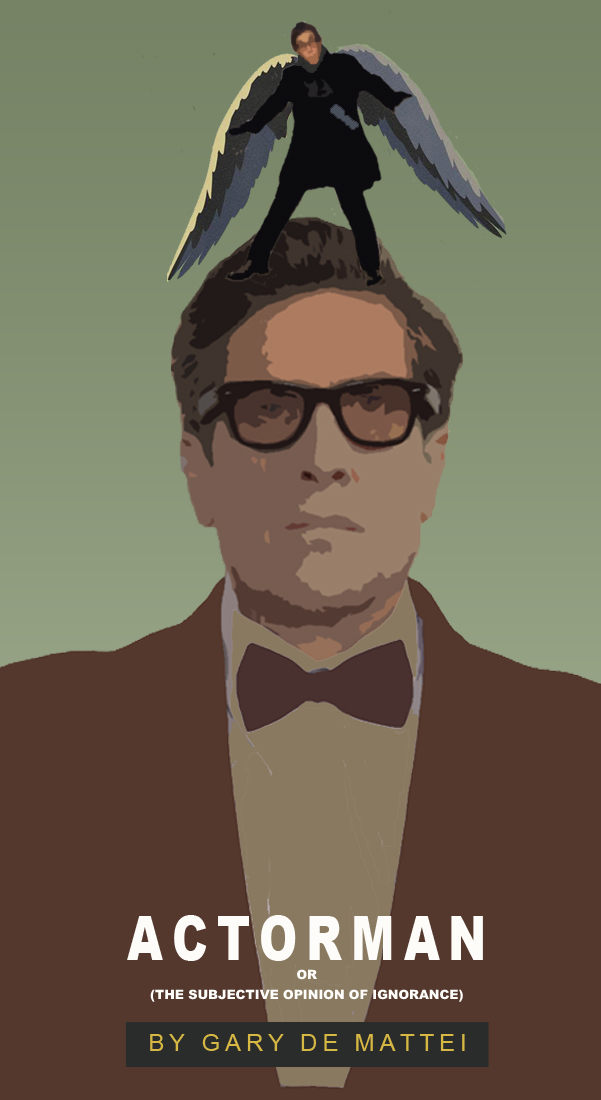WAITING FOR PROSPERO
That night I found myself standing in an old rehearsal hall that was torn down a long time ago. A woman I didn’t recognize was playing a piano I helped carry up the several flights of stairs we had to climb to get there. She smiled as I walked about the cold damp room with faded numbers painted on the scuffed hardwood floor. I fell in love with life on this floor, I thought. Standing behind a metal table guarded by a gentle white wolf was someone I knew well. He was much smaller than I remembered him to be when he was alive and I was very happy to see him again. “O Captain! My Captain!” I said as we embraced. “Forgive me for not defending you against the heartless opportunists that pushed you off your throne and sent you into exile— those that knew well your years of toil yet went out of their way to erase your memory simply by never mentioning you again; as if you never existed; not even a portrait hanging on the wall of your beloved globe.” When the hauntingly beautiful music stopped he stepped back and said, “Adieu, adieu, adieu. Remember me.” Then he and his faithful companion vanished.
My sobbing woke me and I realized it was the same dream I’d been having for several months now. Each time I wake from it I’m soaked with tears and emotionally exhausted. It’s futile to try and go back to bed so, like Shakespeare’s Hamlet, I repeat his ghostly father’s charge to the soundly sleeping love lying there next to me, “Now to my word. It is ‘Adieu, adieu. Remember me.’ I have sworn’t,” then go quietly to my desk to continue writing this subjectively elusive prose…where it stops, nobody knows.
The Impresario
He wasn’t the first to take risks or to dream of growing a little theatre company large enough to fill a twenty seven hundred seat house. After decades of hard work and sacrifice, he succeeded time and time again. Then his was pretty much the boilerplate ending for impresarios of his ilk: The carpetbaggers colonized the board replacing his lifelong supporters until one day the local boy with a dream is pushed out to sea creating a storm of controversy in his sleepy little community that lasts until another dreamer can be found to capture the imagination of the people. Once again recalling Shakespeare I thought how much like The Tempest it all seemed.
Feebly put, The Tempest is a fantasy about Prospero, the rightful Duke of Milan, who is hijacked by his brother Antonio, put on a “rotten carcass of a butt” and pushed out to sea with his three-year-old daughter, Miranda. Instead of drowning, Prospero and Miranda’s boat lands on an island and there they set out to begin again. Also on the island is an imprisoned spirit named Ariel, an exiled witch from Algiers named Sycorax, and the witch’s bastard son, Caliban. Here Prospero comes up with a plan to get even with his brother and get his daughter back to Milan to one day sit on the throne where she legitimately belongs. I’m told this type of behavior from a protagonist is key to a successful story about good and evil, and more importantly, redemption.
When the curtain goes up it’s twelve years after their boat wrecks on the island— Sycorax has died; Ariel, who has been released from his prison inside a pine tree by Prospero, now serves him along with Caliban; and Miranda is fifteen going on sixteen and doing remarkably well considering a necromancer with a fairy and an embittered teenager for servants are raising her. Also rounding out the ensemble are assorted stock characters from central casting— the King’s wicked brother, Sebastian; the comedy team of Trinculo and Stefano; the wise old voice of reason, Gonzolo; and depending on the dreaded “director’s concept”— mariners; boatswains; spirits; elves; mermaids; nymphs; giant talking lizards…etcetera.
Lights up on the storm that Prospero, now a great and powerful wizard, conjures (via Ariel) that brings his brother (who is sailing with the conspiring King Alonso, et al.) to him. Spoiler alert: many pages later, all’s well that ends well with the following iconic passage where some say (okay, most say) Shakespeare is speaking to us through Prospero and asking our permission to quit show business:
PROSPERO
Now my charms are all o’erthrown,
And what strength I have’s mine own,
Which is most faint. Now, ’tis true,
I must be here confined by you,
Or sent to Naples. Let me not,
Since I have my dukedom got
And pardoned the deceiver, dwell
In this bare island by your spell,
But release me from my bands
With the help of your good hands.
Gentle breath of yours my sails
Must fill, or else my project fails,
Which was to please. Now I want
Spirits to enforce, art to enchant,
And my ending is despair,
Unless I be relieved by prayer,
Which pierces so that it assaults
Mercy itself and frees all faults.
As you from crimes would pardoned be,
Let your indulgence set me free.
Like Prospero, if your primary goal was (is) to bring the arts to your citizens and not the profits to your not-for-profit boards, then this tale of dreams may just be the tonic you need to weather the temporary heartbreak of voluntarily leaving the empire you’ve built versus succumbing to the side effects of having those who homogenize culture for a hobby forcibly remove you from power— which invariably leads to a rootless existence by way of a series of thankless gigs that never quite measure up to saying, “It’s good to be the king.” Of course, if one happens to find oneself banished, one could dig deep, master the dark arts, plot their revenge, orchestrate their comeback— all while getting a great tan— especially if one is on a deserted island with unlimited clean water, fresh fruit, naked nymphs, sorcerer slaves and a daughter to live for. All of that said, it’s probably best to remember the Hal David lyrics to that great Burt Bacharach tune— “Knowing when to leave can be the smartest thing that anyone can learn. Go!” Then reinvent one’s self from the comfort and safety of one’s own bathtub where one sits splashing about with one’s “Tempest” action figures. For example, Shakespeare saw his own writing on the wall and put an end to his reign long before anyone could force his butt on a butt and push him out to sea. Through Prospero, Shakespeare was able to drown his books on his own terms and write one hell of a resignation letter in the process.
PROSPERO
But this rough magic
I here abjure, and, when I have required
Some heavenly music, which even now I do,
To work mine end upon their senses that
This airy charm is for, I’ll break my staff,
Bury it certain fathoms in the earth,
And deeper than did ever plumm
I’ll drown my book.
Make believe stories about good and passionate people unjustly deprived of their rightful station in life, and in the end get even, are such stuff as dreams are made on. As audience members we want the good to get justice and the imposters behind the curtain revealed. And in the end if the good are truly great, they show us they’ve never lost the one quality that made them so: forgiveness. Prospero, for example, is so forgiving he pardons all and marries off his daughter to Ferdinand thereby restoring order to the realm and peace in his heart.
PROSPERO
You brother mine, that entertained ambition,
Expelled remorse and nature, whom, with Sebastian,
Whose inward pinches therefore are most strong,
Would here have killed your king—I do forgive thee,
Unnatural though thou art.
But what about those real-life “Prosperos” who were removed from power and didn’t get the chance to come face to face with their offenders and forgive them? Those who died too soon and without “Mirandas” to shut the door and weep with them? Who do these “Prosperos” haunt? Perhaps those who loved them like one who loved a father wronged.
My story begins in the Valley of Heart’s Delight. My Duke was very much like Shakespeare’s— passionately and artfully ruling his kingdom until the day speculators disguised as sycophants took it from him. I was there. We all were and yet we could do nothing— those of us that followed him too and learned from him too and loved him too. I was standing in the front row of “director’s call” when he announced he was leaving us. I saw the look that would haunt me forever; his look— the look of defeat; the look of sorrow; the look of the silent goodbye. My god, Thespis, I could’ve fought the evil corrupt base usurpers with spiked tongues and cheap suits responsible for his exile. It was half hour before curtain and I was a Jet! And when you’re a Jet you’re a Jet all the way from your first cigarette ‘til your last Grand Jeté! I was young, strong, brave of heart and handy with a switchblade comb— at the very least I would’ve combed their scalps to shreds if only I could’ve seen them! But, alas, like all insipid followers of Robert’s Rules of Order, they are only visible in the harsh and sickly haze of varicosity blue fluorescent lighting, which makes them invisible to gypsies, whose eyes function best in the glow of expertly designed, gelled and focusable theatrical lighting.
It was a few years before the plague when I met him so life was still beautifully naive for those of us who served the rightful Duke of Élan. He was all about perfection and looking simply amazing while achieving it— all t’s were crossed, i’s dotted, and you must never wear white after Labor Day…except him, of course. My Duke followed no man’s guide to style but his own. Compared with some who worked with him for decades, I hardly knew him. Compared with others, I was his friend, ally, committed slave, and defender of his art for life. He was one of the only men I’ve ever completely trusted. I felt safe with him. I would even drive with him. This doesn’t sound like a big deal but he had narcolepsy and would often fall asleep at the wheel. But he’d always wake up just in time to stop at the big red light. Or when he knew you were supposed to cross downstage and you went upstage instead.
During the years I spent serving my Duke it never felt like work, it felt like life. It would be an understatement to say I’d found a home with him. He was a theatre magician, clever at doing it all and making the most tedious of tasks artful. I witnessed his genius first hand— he could produce and direct an entire season while at the same time turn a costume designer’s disaster into a ball gown with just a pair of fabric shears while still on his Cinderella’s body. Then, while on the phone negotiating his stars’ contracts, he’d transform the plywood step unit she was to lose her slipper on into a marble staircase with just a couple of buckets of paint and an old sponge. Once, on opening night of a sold out run of Fiddler On The Roof as he was staging bows while also finalizing the Kosher menu for the gala, I watched him help the box office fill hundreds of orders while also signing personal thank you cards to his cast and crew and attaching little gold safety pins to them— his reminder to always expect the unexpected. And could he wrap a gift? Put it this way— if you were fortunate enough to get a Christmas gift wrapped by my Duke, it would still be unopened and on the shelf next to the little trophies he awarded you for exemplary service to your community theatre. And that’s just what his organization was too— a real “mom and pop shop” with a board of directors made up of the hard working members of the city doing their bit to wake up their sleepy little downtown— the butcher, the baker, the grocer, the clerk, the exterminator, the travel agent, the dentist, the lawyer, the accountant, the teacher, the secretary, the student, the bum— a veritable who’s who of the city’s infrastructure— and they all had to go to work the next day, but that night it was all about, “Hey kids, let’s put on a show!”
He prepared his players for a life in the theatre whether we wanted it or not. And if we did he could see it and he’d punish us all the more for the wanting. Those who didn’t want it, he noticed too and he treated them nicer— sort of like my parents used to treat other people’s children. If my Duke said nothing to me it meant he was disappointed in my lackluster performance at rehearsal and eventually he would unleash a tempest upon me the likes of which I can only paraphrase a fraction of to protect the politically corrected.
“I want to know why you don’t know your frigging lines? Do you realize you’re not only taking valuable time and money away from this company, you’re also pissing on the names of all who’ve gone before you, and are now stuck in some frozen roach trap three thousand miles away dreaming of being back here, where it’s safe, and warm, and fun to perform for all of your little candy-ass friends sitting in the front row on opening night? The place you’re day dreaming of going after this is a land where everybody can stick the double on both sides, do the triple time step, belt the high C, boom the low D, and recite Shakespeare’s entire frigging canon by rote! But, “out there” it’s not just about that—— it’s about whether or not you can keep auditioning until everybody else who is just as talented as you think you are quits or dies. Unless of course you are one of the fortunate few who have mommy and daddy’s credit card to plunk down at the trendy upscale diner someone more talented than you just served you dinner in before they went off to do their graveyard shift in the hospital emergency room mopping up the blood from the wrists of some other poor kid who also thought they could make it there because everybody said they were so goddamn cute when they played the lead in, Goldilocks! The Musical, at the Conservatory of Dramatic Trust Funds! Well, you’re not a blonde, you’re not cute, so you must have rich parents—— do you have rich parents? I didn’t think so. Well then, I guess you better start working your moderately talented ass off and come to rehearsals prepared! And while you’re at it—— take some dance classes; and some voice classes; and some acting classes; and lose some weight; and learn how to juggle plates with hot food on them! And after you’ve done that and you still think you’re ready to run away from all the comforts of this theatre company and join that circus—— then maybe, just maybe you might catch a break one day and find yourself at an audition where all the really talented kids decided to go to the beach because it’s the first day of the long hot summer where the humidity is finally a few points below a hundred percent—— if this happens—— and it won’t—— but if it does, then you just might get a callback for the understudy of the Eunuch In The Back Row Holding His Crotch in the Off-Broadway musical that’s so far off Broadway, it’s in New Jersey! But, it’s obvious I’m wasting my breath, because you’re not even disciplined enough to memorize lines for a role in a show that a thousand other kids in this town are dreaming to have! Come to think of it, you don’t deserve to have these dreams; these dreams are for people who not only know how to come to rehearsal with their frigging lines memorized, but everybody else’s frigging lines memorized too!”
To thine own self be true was his motto. I’m sure he had other favorite sayings but that was the one I remember him ending most rants on me with, that and a barrage of four-lettered words. Or worse, he’d simply imprison me with his silence— like Caliban, I’d find myself locked away in the hell of his cold shoulder forever…or so I feared. Then after rehearsal he’d say, “You want to go for coffee?” It would be a lie to say I didn’t love it when he asked me in front of someone he treated nicer but didn’t invite to coffee.
His office walls were lined with photographs of all of the stars he brought to assist him with the instruction of his pupils— some he had worked with since they were children and now they were all grownup and stars in their own right. My Duke used to say, “If you watch them closely they’ll teach you what it means to brand a role with your own voice.” He’d say this from behind his desk while breathing fire through his nostrils. His oldest and dearest friends called him, The Dragon, but to me he was the knight who slay the dragon of artistic mediocrity in our beloved valley and paved the way for other dreamers to follow.
Those who came after my Duke and sat in his chair needed many more chairs and a whole lot more money to do the job of one impresario. And they too had many palpable hits and only a few misses. Ay, there’s the rub: the misses— the red marks on their ledgers that would eventually lead to their banishments too. And in the end there would be one boardroom left divided. Now, not being a fly on the wall of the final meeting where the decision was made to shutter an institution, one can only assume the ayes were far more powerful than the nays— perhaps like Mr. Shakespeare, they saw their own writing on the wall too, and so they voted to drown their books on their own terms, because unlike Prospero’s books, their books were real…and their books probably didn’t balance.
My Duke was truly an original. And originals are often forgotten after the factions take charge. And this is why I feel that until all the old rehearsal halls have been demolished and all the community theatre companies throughout the land have been replaced with homologous national tours— there must be trumpets, or portraits, or plaques, or statues, or streets, or reunions— or at the very least— subjectively elusive prose written by hopelessly romantic poets honoring the trailblazers who did the heavy lifting necessary to lay the cornerstones of imagination in their communities, and by doing so, possibly inspired future generations of dreamers to be better at surviving the slings and arrows of outrageous missed fortunes than their predecessors were.
During his most recent visit I informed him that his former empire had fallen. Needless to say, he was crestfallen and wondered where all his orphans would go.
“Fear not, My Liege, occasionally a few of your children,
And even some of your children’s children,
Gather in pubs and clubs throughout the land to drown gray hairs
And remember the best of perms and the worst of perms,
And share stories of masques created by their favorite “Prosperos”.”
I even showed him pictures from a recent get together here on the east coast, which afterwards I thought odd because at the time I didn’t own a smart phone. Never the less, in my dream he seemed fascinated with the new technology and enjoyed using his index finger to smudge the shiny new screen while he swiped from one photo to the next.
“Is that What’s-Her-Name?” He asked.
“Yes it is,” I said.
“Wow, she looks great. You know, she started with the company way back when we called it,
San Jose Music Theatre?”
“Yes, I know,” I said.
“Is that What’s-His-Name?”
“No,” I said, “That’s me.”
“Well, now, you look like shit.”
We both had a good laugh. Then he said——
“You came to us right after we changed the name to San Jose Civic Light Opera.”
“Yes,” I said. “And I left a little after you did, before the name was changed again to,
American Musical Theatre of San Jose.”
Tears in his eyes, he looked at me and said——
“What’s in a name? That which we call a rose by any other name would smell as sweet.” And then he
vanished.
Well, once again, I woke to discover his tears were mine. So, I dried my eyes, whispered in my love’s ear, “Now to my word…I’ve sworn’t,” tiptoed to my writing table so as not to wake her and waited for my muse to visit me with words, words, words, befitting a proper ending to these sentimental ramblings about a Prospero I once knew with a dream to please his kingdom. Of course, the words were Mr. Shakespeare’s —
“Our revels now are ended. These our actors,
As I foretold you, were all spirits, and
Are melted into air, into thin air:
And like the baseless fabric of this vision,
The cloud-capp’d tow’rs, the gorgeous palaces,
The solemn temples, the great globe itself,
Yea, all which it inherit, shall dissolve,
And, like this insubstantial pageant faded,
Leave not a rack behind. We are such stuff
As dreams are made on; and our little life
Is rounded with a sleep.”
“Good night sweet prince:
And flights of angels sing thee to thy rest!”
To be or not to be…continued.







